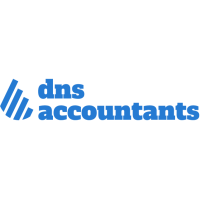Nudge letter from HMRC: Here's what to do!
HMRC in the UK are now regularly using ’nudge letters’ (also known as one to many letters) to encourage taxpayers to check their tax position and review their tax affairs and identify potentially undeclared income or gains.
HMRC began issuing nudge letters in 2017 and we have seen an increasing number and a wide variety of nudge letters being sent out by HMRC over subsequent years. If you have received a nudge letter, then you should not ignore it!
In this blog, we explain more about nudge letters, their use by HMRC and what to do if you receive a such a letter from HMRC.
What is a HMRC nudge letter?HMRC send letters to individuals to check their personal tax affairs and whether individuals have any undeclared income or gains from overseas or other sources. The letters are referred to as ’nudge letters’ or ’one to many letters’.
However, nudge letters are not only issued to individuals, they can also be issued to companies, non resident corporate landlords and charities as well.
Often the letter does not refer to the tax year that the letter relates to, which means it could relate to multiple tax years. Nudge letters can relate to any type of tax but are often related to income tax and capital gains tax.
Reasons you may have received a HMRC nudge letterHMRC often issue these nudge letters to taxpayers via automatic exchange of information from other countries or other institutions such as banks, solicitors, online, UK Land registry etc.
You may be sent a nudge letter if HMRC see:
- Discrepancies in data received from overseas tax authorities.
- Changes in your personal circumstances.
- Information supplied by a third party.
Nudge letters can also relate to a wide range of topics. Some of the topics covered by nudge letters are:
- Rental income from short-term property letting
- Overseas income
- Earnings from online market places
- Business Asset Disposal Relief claims (formerly Entrepreneurs’ Relief)
- Crypto asset transactions
- Research and development claims
- Individuals named in the Pandora Papers
HMRC follow up information that they have received from overseas tax authorities under the Common Reporting Standard (CRS). The Common Reporting Standard means that information is passed automatically each year between different countries. The Common Reporting Standard (CRS) is a way for countries to automatically exchange information about non-residents holding bank accounts and other financial accounts offshore.
The trigger to pass on information is where the taxpayer lives in one country but has overseas income or gains from another country or has a bank account overseas. For example, a UK taxpayer with a property in Spain, receiving overseas rental income, but may have given a UK postal address to people such as banks, lawyers etc.
Is a nudge letter a tax investigation?Nudge letters are not an investigation. An investigation in law will quote the legislation under whichever tax and for what year(s).
Nudge letters are designed merely to give a taxpayer a gentle nudge based on information received or found by HMRC about an individual’s tax affairs. However, HMRC do not states exactly what they have concerns about and the nudge letter itself may not always give the taxpayer any further information.
What to do if you receive a nudge letterOur advice is to not panic but don’t ignore the nudge letter!
Accompanying the letter can be a Certificate of tax position that HMRC asks the taxpayer to sign and return within 30 calendar days, but you can request an extension if you need more time to investigate the reason for the nudge – HMRC can grant an extension at its discretion and depending on the reasons given.
If you believe something may need correcting for example with your tax return, such as additional income that hasn’t been declared or underpaid tax, then you should seek professional advice from a qualified tax adviser such as dns accountants.
A professional tax adviser can help you to establish the right amount of tax required to be paid, whilst taking into account reliefs and exemptions within the appropriate tax years legislation. They also can advise you on the possible penalties you may face and advise you whether you should declare things using things like the Worldwide Disclosure Facility (WDF). The Worldwide Disclosure Facility can be used to disclose a UK tax liability that relates wholly or in part to an offshore issue.
Even if you don’t believe anything needs correcting or declaring, it is wide to still liaise with HMRC to head off any potential future tax investigation.
How can I correct my position after I’ve received a nudge letter?Taxpayers may correct their tax position in one of the following ways:
- Registering with HMRC and submitting tax returns for the first time.
- Amending previously submitted tax returns.
- Making a disclosure to HMRC.
Our advice is that it is unwise to ignore any nudge letter from HMRC.
Tax evasion, maintaining accurate tax records, disclosing all income and paying unpaid tax are all taken very seriously in the UK.
If you continue to ignore HMRC, and HMRC finds wrongdoing, there can be serious consequences such as HMRC opening formal enquiries, higher penalties, civil action or criminal action being taken against you by HMRC.
The importance of professional advice when handling HMRC nudge lettersSeeking advice from a qualified tax adviser when you’ve received a nudge letter could:
- Provide a cost effective solution to the issue and save you money in the long term.
- Give you peace of mind that the tax matter is in hand.
- Review your circumstances and offer you bespoke advice on your tax position.
- Help you to understand the tax year or years in question.
- Assist you in responding to HMRC by responding on your behalf.
- Give you advice on appropriate tax laws.
- Advise on the necessary course of action.
- Help you to prepare and file the appropriate paperwork to declare undisclosed income and gains.
Although many taxpayers may receive letters from HMRC, all HMRC correspondence should be taken seriously in all instances. Robust action is required to deal with HMRC and deal with the matter in hand. Our advice is always to respond to HMRC in some way, even if you believe there is nothing wrong or nothing to declare.
For help and advice on tax liabilities, offshore tax issues, residency status, overseas interests, disclosure facilities and other worldwide tax issues Contact dns on 03300 886 686 or email us on [email protected].today for help and advice on HMRC letters, tax investigations or other tax queries.
Self-assessment tax return forms
More Articles
Understanding the Importance and Types of Emergency...
Labour’s new Employment Rights Bill: challenges employers...
Would you like to promote an article ?
Post articles and opinions on Professionals UK
to attract new clients and referrals. Feature in newsletters.
Join for free today and upload your articles for new contacts to read and enquire further.





